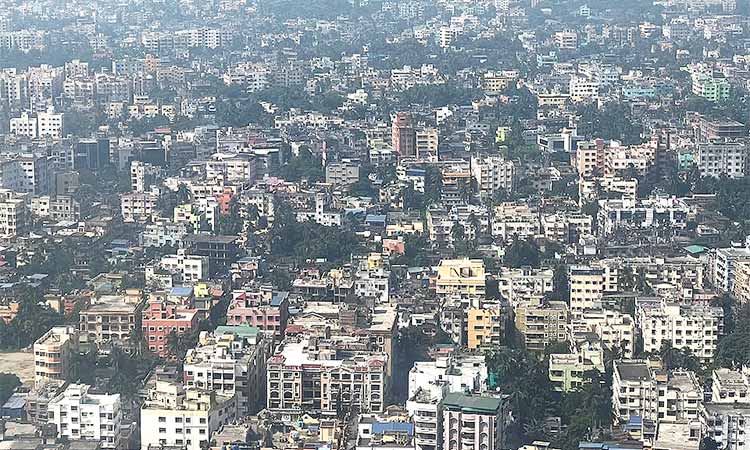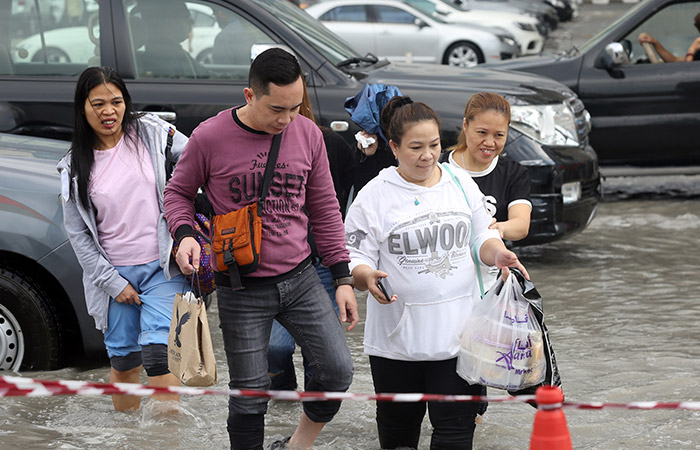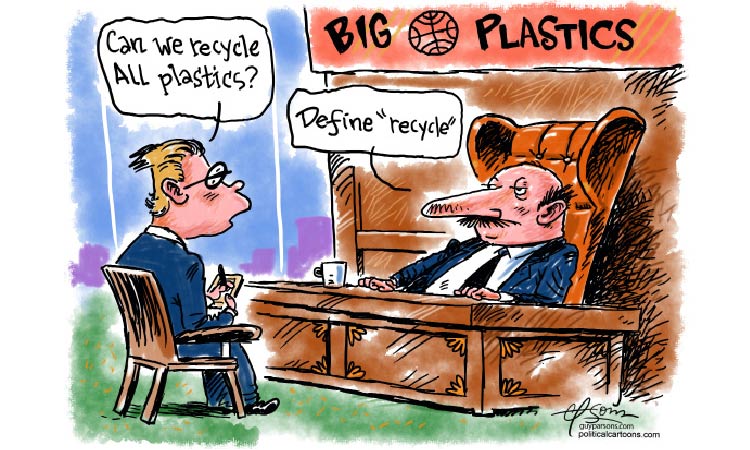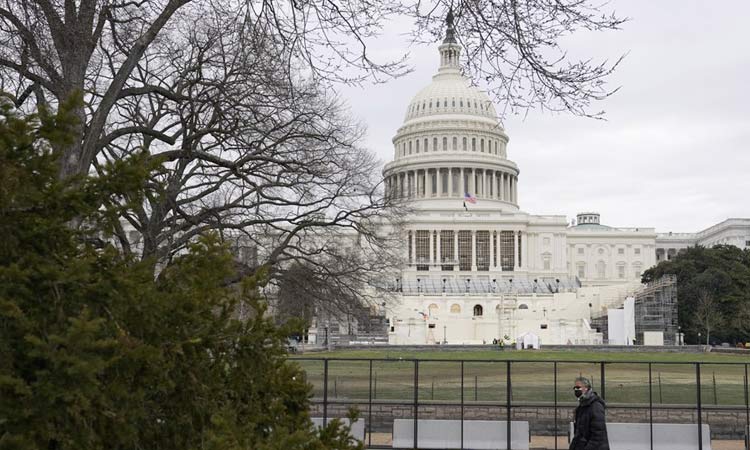North Korea playing with fire
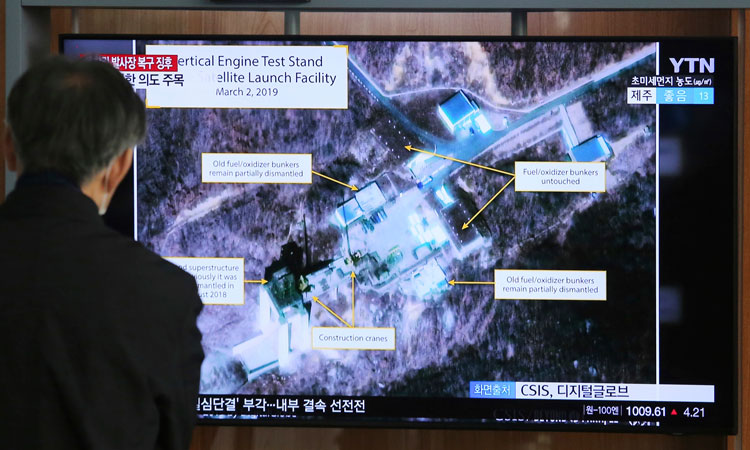
A man watches a TV screen showing an image of the Sohae Satellite Launching Station in Tongchang-ri, North Korea, during a news program at the Seoul Railway Station in Seoul, South Korea, recently. Ahn Young-joon / Associated Press
If North Korea is indeed preparing for a missile or space launch as US news outlet NPR has reported based on satellite image analysis of a key facility near Pyongyang, then the world better wake up and act before it is too late.
As per NPR, the images of Sanumdong, one of the facilities Pyongyang has used to produce inter-continental ballistic missiles and space rockets, were taken days before US President Donald Trump and North Korean leader Kim Jong Un met in Hanoi for their high-stakes summit, which ended in failure. This, in fact, makes the situation more worrisome as the intentions of Pyongyang are unclear and gets dubious by the day.
The Sanumdong analysis has come just days after the specialised website 38 North and the Center for Strategic and International Studies said Pyongyang may have resumed operations at its long-range rocket launch site at Sohae, based on their study of satellite imagery from March 6.
As of now, Trump seems to stand by his “dear friend Kim,” despite the collapse last week of their second summit. All that Trump has said of Pyongyang’s likely resumption of weapons testing is that he “would be surprised in a negative way if Kim did anything that was not per our understanding. But we’ll see what happens.”
Nuclear weapons are the most terrible enemies of humanity. The world must respond to the dangers of accumulation and proliferation of weapons.
According to the NGO, Campaign for Nuclear Disarmament (CND), the heart of a nuclear explosion reaches a temperature of several million degrees centigrade. Over a wide area the resulting heat flash literally vaporises all human tissue. At Hiroshima, within a radius of half a mile, the only remains of most of the people caught in the open were their shadows burnt into stone.
The International Red Cross has concluded that the use of a single nuclear weapon in or near a populated area is likely to result in a humanitarian disaster that will be difficult to address. Add to this the fact that there is currently no international plan in place to deliver humanitarian assistance to survivors in the case of a nuclear attack.
North Korea had carried out six nuclear tests between 2006 and 2017. In the wake of diplomatic efforts led by the US and South Korea to denuclearise the Korean Peninsula, and the lull in rocket launches, there was optimism in the air.
In 2017, Pyongyang claimed it had become a nuclear state, capable of fitting a viable nuclear weapon on an ICBM that could reach as far as the United States’ eastern seaboard. In response, the UN Security Council had to ban North Korea’s main exports — coal and other mineral resources, fisheries and textile products — to cut off its access to hard currency.
Though Washington has said it is open to more talks with North Korea, it has rejected an incremental approach to negotiations sought by Pyongyang and it remains totally unclear when the two sides might meet again.
Even as Washington increasingly turns its attention towards next year’s presidential election, the total denuclearisation of North Korea by the end of Trump’s term in 2021, seems to remain an unrealistic goal.
As Jenny Town of the 38 North think tank points out, the lack of even a partial accord has meant “we have lost that momentum” created by last year’s rapprochement.
The problem is also that the Kim dynasty has long seen nuclear weapons as a security guarantee against what it perceives as the hostile intentions of the United States.
Washington and the rest of the world want North Korea to give up its nuclear weapons programme and everything associated with it. Trump’s national security adviser, John Bolton, has come up with tough words for Pyongyang. “If they’re not willing to do it, President Trump has been very clear — they’re not going to get relief from the crushing economic sanctions that have been imposed on them and we’ll look at ramping those sanctions up in fact,” Bolton has warned.
Separately, two US senators have also sought to pile up pressure on North Korea by reintroducing a bill to impose sanctions on any bank that does business with its government.
The overall situation looks hazy. The US needs to resume working-level talks as soon as possible. It’s good that Washington has reacted in a measured way to revelations about the rebuilding of the rocket test site. Giving diplomacy more time especially on a subject of such importance to entire humanity is fairly reasonable.
From repeatedly firing ballistic missiles and threatening world peace, North Korea has come a long way with its willingness to shut down the nuclear programme.
Letting go of the peace opportunity at this stage cannot be an option for any party involved in the dialogue process.
